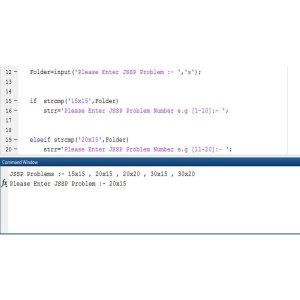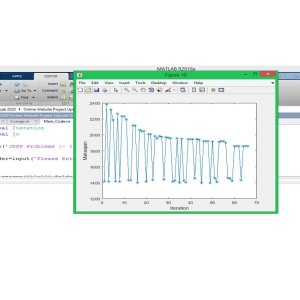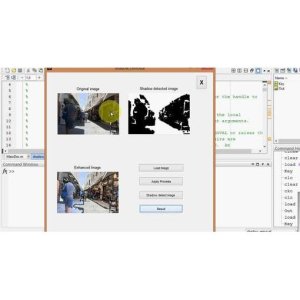Job Scheduling Optimization in Grid Computing
Problem Definition
Problem Description:
The problem of job scheduling in grid computing environments presents a challenge in efficiently distributing resources and workloads to various processors in order to minimize the average response time for completing tasks. Traditional scheduling methods may not be optimal in this scenario as they may not consider the specific resource requirements of each job and the capabilities of individual processors. There is a need for a more sophisticated approach that can optimize job scheduling by taking into account various factors such as resource availability, job processing time, and workload distribution across processors.
The use of a composite optimization model that combines genetic algorithms and state transition techniques can offer a more efficient solution to the job scheduling problem in grid computing environments. By leveraging these advanced optimization algorithms, it is possible to dynamically assign jobs to the most suitable processors, thereby reducing the average response time and improving overall system performance.
This project aims to address the challenges associated with job scheduling in grid computing by implementing a novel approach that enhances resource allocation and workload management for better efficiency and performance.
Proposed Work
The proposed work titled "A composite Optimization model for Job Scheduling in grid computing" focuses on the optimization of job scheduling in grid computing systems. Scheduling is crucial in distributing resources efficiently for timely completion of tasks. This research project aims to assess techniques that can minimize the average response time by determining the optimal processor for each job. The approach involves a combination of genetic algorithms and state transition techniques to constantly improve the optimization process. The implementation of this composite optimization model using Basic Matlab enables the generation of random solutions for the job scheduling problem.
This project falls under the categories of Latest Projects, M.Tech | PhD Thesis Research Work, Optimization & Soft Computing Techniques, with subcategories such as Swarm Intelligence and MATLAB Projects Software. The findings from this study will contribute to advancements in optimization techniques for job scheduling in grid computing systems.
Application Area for Industry
This project on job scheduling in grid computing systems can be used in various industrial sectors such as information technology, finance, healthcare, and manufacturing. In the IT sector, where large volumes of data are processed and analyzed, efficient job scheduling is essential for optimizing system performance and reducing response times. In the finance industry, timely processing of transactions and data analysis is critical, making efficient job scheduling crucial for maintaining competitiveness. In the healthcare sector, where patient data and medical records are managed, optimized job scheduling can improve the efficiency of healthcare delivery and decision-making processes. In the manufacturing industry, job scheduling plays a vital role in ensuring smooth production processes and minimizing downtime.
The proposed solutions in this project can be applied within different industrial domains to address specific challenges. For instance, the use of genetic algorithms and state transition techniques can help in dynamically assigning jobs to the most suitable processors based on resource availability, job processing time, and workload distribution. This approach can lead to a reduction in average response time and improved overall system performance, which is beneficial for industries where time-sensitive tasks are common. By implementing this composite optimization model, industries can enhance resource allocation, workload management, and overall efficiency in job scheduling processes, ultimately leading to cost savings, improved productivity, and better decision-making capabilities.
Application Area for Academics
The proposed project on "A composite Optimization model for Job Scheduling in grid computing" holds significant relevance for MTech and PhD students conducting research in the field of optimization and soft computing techniques. This project offers a unique opportunity for researchers to explore innovative methods for improving job scheduling in grid computing environments by utilizing genetic algorithms and state transition techniques. By incorporating these advanced optimization algorithms, researchers can analyze and optimize job scheduling to minimize average response time and enhance system performance. MTech and PhD scholars can leverage the code and literature from this project to develop simulations, conduct data analysis, and explore new research methods for their dissertations, theses, or research papers. Additionally, this project covers specific technologies such as MATLAB and research domains like Swarm Intelligence, providing researchers with a comprehensive framework to conduct impactful research in the field of job scheduling optimization.
The future scope of this project includes the potential for further advancements in optimization techniques for grid computing systems, offering MTech and PhD students ample opportunities to contribute to the field through their innovative research endeavors.
Keywords
job scheduling, grid computing, resource allocation, workload management, optimization model, genetic algorithms, state transition techniques, average response time, processor allocation, system performance, efficiency, composite optimization, resource availability, job processing time, workload distribution, advanced optimization algorithms, efficiency, performance, research project, M.Tech, PhD thesis, optimization techniques, Swarm Intelligence, MATLAB projects, software.
| Shipping Cost |
|
No reviews found!

























































No comments found for this product. Be the first to comment!